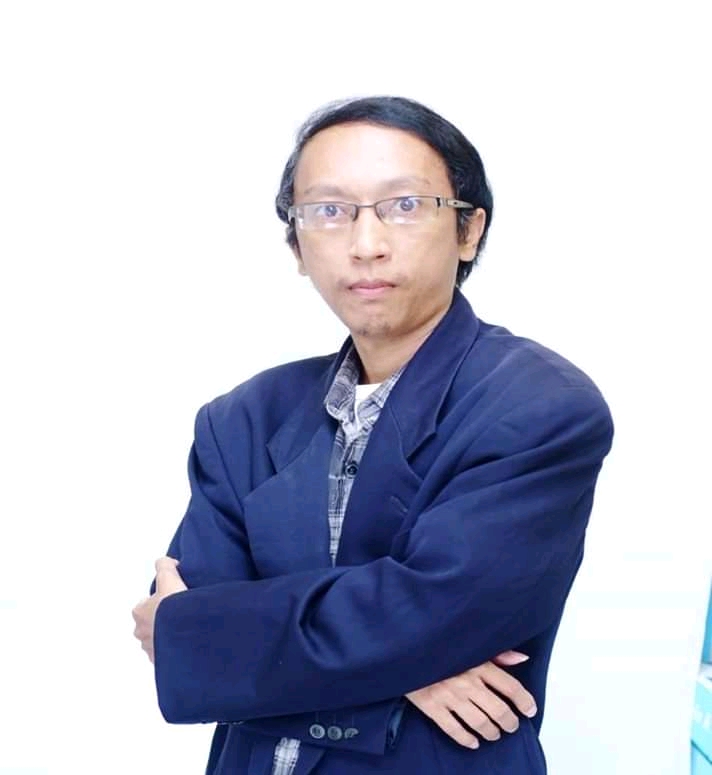Biography
Dr. Uqbah Iqbal is a Socioeconomic Researcher at Research for Social Advancement. Winning Second Place in Malaysian Historical Essay Writing Competition 2013, he was the recipient of Research University Fellowship Scheme, Graduate on Time Award and Outstanding Student Award from Faculty of Social Sciences and Humanities as well as the Youngest Ph.D. in History Holder and the only Malaysian achieved a Ph.D. in History in conjunction with the 43rd Convocation of Universiti Kebangsaan Malaysia. He's authoring notable books/ebooks such as The Historical Development of the Malay Nationalism Before Independence, The Historical Development of the Malay Society Economic Nature During Pre-Colonial Era, The Historical Development of British Investment in Malaya Before the Second World War, The Historical Development of Foreign Investment in the Formation of the Malaysian Economy and Sejarah Pemikiran Pandang Ke Timur: Kepentingan Jepun Dalam Pembangunan Sosio-Ekonomi Malaysia (1906-1980). His publications have appeared in a wide range of international and national journals such as TAWARIKH, SUSURGALUR, Management and Administrative Sciences Review, Social and Basic Sciences Research Review, Jurnal Kemanusiaan, Jurnal Sejarah, Jurnal Pengajian Melayu, Jebat, International Journal of Social Science and Humanities Research, Asia Pacific Journal of Education, Arts and Sciences, Asian Social Science and Geografia. He's also actively in the editorial board such as Asian Social Science, International Journal of Art and Literature, International Journal of Archaeology and History, American Journal of Social Sciences, Asia Pacific Journal of Education, Arts and Sciences, Social Sciences, Humanities and Social Sciences, History Research and Pratidhwani the Echo. Through his involvement as a reviewer with the Nonfiction Authors Association, 15 of his reviewed books received Awards.
Research Interest
Psychiatry, Psychology

Jaime Senabre
Psychologist. Director of SINIF.
Researcher at the University of Ali
Spain
Biography
Degree in Psychology and Master in Psychopathology and Health. He completed doctoral studies in the Department of Personality, Evaluation and Psychological Treatment of the UNED, related to Stress and the Immune System, Posttraumatic Stress Disorder and Moobing. Chief of Brigade in the Forest Fire Service of the Generalitat Valenciana, with more than 20 years of experience. With multidisciplinary training at the Master's level in areas such as: Occupational Health and Safety, Emergency Management, Sport Psychology, Human Resources Management, Mediation, Conflict Resolution and Coaching. Postgraduate in Environmental Consulting and Criminology. As a psychologist, he collaborates with several companies and institutions in the area of training in Psychology in Emergencies and Human Resources management. He is Professor at the University of Valencia in the Master in "Intervention and operational coordination in emergencies and catastrophes" and Diploma of University Specialization in "Instructor in Emergency Operations Services", among others. He is Director and President of the International Scientific-Professional Committee of the National Symposium on Forest Fires (SINIF). He has given numerous conferences at international level and has been part of the Organizing Committee of several International Congresses. He is part of the Editorial Board of several international scientific journals. He has published numerous articles on forest fires, stress, psychosocial risks and emotional trauma, mainly in relation to emergency services and natural disasters. Currently, he is assigned to the Research Group in "Climate and Territorial Planning" (Department of Regional Geographical Analysis and Physical Geography) of the Faculty of Philosophy and Letters of the University of Alicante, where he researches on the Social Perception of Forest Fire Risk and Conduct to possible Disasters. He is a member of the Spanish Society for the Study of Anxiety and Stress (SEAS), and the Spanish Association of Clinical Psychology and Psychopathology (AEPCP).
Research Interest
Work stress, occupational health and safety, anxiety disorders, post-traumatic stress disorders, social perception of risks and psychology in emergencies.

Javier Fiz Perez
Psychotherapist and Professor of Psychology
University of Rome
Italy
Biography
Javier Fiz Perez Ph.D., Psychotherapist and Professor of Psychology at the European University of Rome, where he cooperates also as Delegate for International Research Development. He is Co-Director of the Laboratory of Applied Business and Health (Organizational Psychology) being also Member of the Board of Coaching Teachers (RENACOP; graduated in Philosophy, Psychology and Social Bioethics, obtaining specialization in Executive Business Administration (EMBA) after his PhD. He is a Member of the Advisory Board of the Academic Senate of the Accademia Tiberina. Professor Fiz Perez is Coordinator of the Scientific Committee of The International School of Economics and Ethics (Italy) and collaborates with the International Academy for Economic and Social Development (AISES), for which he has been Vice President for Spain and Latin America. He is a Scientific Research Director for the European Institute of Positive Psychology in Madrid (IEPP) and also a Member of the Scientific Committee of the International Institute Jacques Maritain. He is a Member of several Committees of Scientific Journals and Director of the International Network for Social and Integrated Development (INSID). Professor Fiz Perez has more than 200 national and international pubblications. He is Chief Editor of “Sviluppo Integrale†(Persiani Editori, Bologna), “Human Sciences: From Training to Practice†(NeP Edizioni, Roma) and also collaborates with Aleteia-Org. as Director of the International Scientific Committee, actually being International Director for Development in Italy, Spain and Latin America for SoEI - UK (Society of Emotional Intelligence - UK).
Research Interest
Life Span, Integral Formation and Developmental Psychology; Vocational Rehablitation,; Social Reintegration; Cross cultural intelligence; Cognitive and behavioral Psychotherapy; Quality of life; Positive Psychology, workplace and work life balance; Emotional intelligence; Education.; Soft skills.


